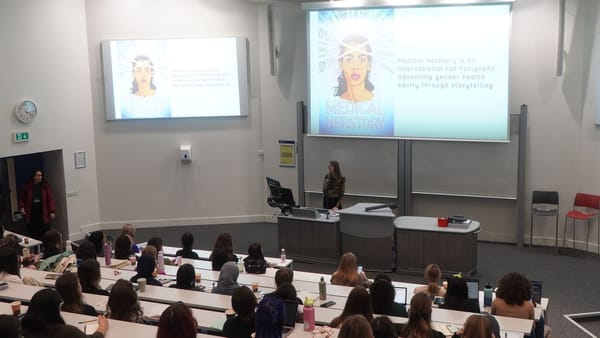Broken promises
College Council haven’t delivered on the teaching review
Last week’s Felix headline announced that I accused Professor Dallman, the Principle of Natural Sciences, of lying to the College Council. Those are not the exact words that I used (I said she lied to the Union President and misled College Council), but the implications are large and it is worth explaining what happened.
The restructure of Life Sciences began in July 2010 when College Council approved a document initiating the restructure; this document gives the overall objectives of the restructure and why they are necessary. The July meeting of College Council is in a period of handover for the Union, so both my predecessor and I were present. Ashley asked Professor Dallman what the effect of this restructure would be on teaching and on the current structure of the courses. She replied by saying very clearly that there was no intention to change academic programmes in the Department or reduce their content and that students in the Department should not be unduly affected.
When the names of the staff being made redundant were released it was clear that these promises were not going to be kept. The meeting in SAF where over 400 people came to see the explanation of the restructure showed that this was true, with the majority of questions relating to the loss of favourite teachers affecting courses. Prof. Dallman and Prof. Owens brushed these questions aside and said that courses would not be affected. It was even said that teaching would be made better after the restructure was complete.
What then happened in December left most people extremely frustrated. With the knowledge of the redundancies and the projected impact on courses, the letters from other Universities and Institutions and the comments from Imperial’s own staff members made public, we asked Senate to suspend the restructure. This, as we know, was not successful. What did happen though, was another promise by Professor Owens. He said that he did not “anticipate a reduction in module choice for students” and that “the quality of student teaching and experience will only be enhanced by the planned changes to its courses”. Considering that this statement was issued when the redundancies were known and many academics were saying that courses would suffer, it can only be called clueless.
What it did in the meeting however was to stop there being any real debate on whether the effect of the restructure on teaching was justified and what it would be. By repeatedly denying that there will be any change at all Professors Dallman and Owens neutered a proper discourse with students and staff alike until the real changes were known, and by then it was too late to reverse the changes.
We are now nearly at the end of the Teaching Review, a separate process which does not involve Professors Dallman or Owens, and which has looked at the overall teaching in Life Sciences, but has also had to apply academic First Aid to a suite of modules and course choices which were suddenly rendered impossible with the losses encountered in the restructure. There were a lot of other suggestions that came out in the Teaching Review, many of which are to be welcomed and the panel accepted and changed some of the plans after students and staff gave feedback. This was an encouraging sign, as no such system of taking account of feedback occurred in the restructure. What was obvious from the Teaching Review document was the effect of the restructure on final year Life Sciences modules, and that by the time the new intake of students reach their final years, approximately 17 modules currently available will not exist.
There is a clear difference here between what Professor Dallman said when she initiated the restructure and what has actually happened; and what has happened was nearly entirely under the control of the restructure panel, and Dallman and Owens in particular. To have spent several months considering the outcome of the redundancies and to come to the apparent conclusion that nothing will be affected either suggests that they weren’t thinking very hard or that they deliberately misled. Either way, it does not say much about the accountability of College Council if a process they started can be concluded under such different circumstances to those promised.





